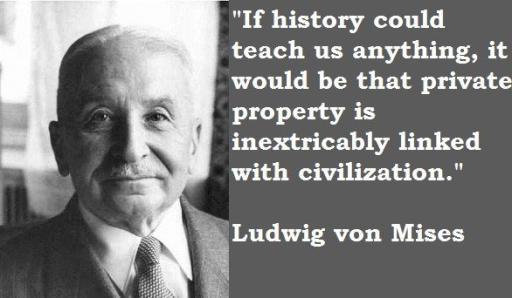
We Don't Need to Create Jobs — We Need to Create Value

An influential left-wing think tank has called for the government to create millions of jobs for those without a college degree, leading to headlines like The Nation’s declaration that “It’s Time for the Government to Give Everyone a Job.”
One fatal flaw of such a plan was exposed in the comments section of that article, when a commentator named Ira Dember pointed out the perverse incentives that would result if the government guaranteed jobs to only those without a college degree.
Namely, that there is little incentive to undertake the expense of going to college in the hopes of finding employment, when the government will guarantee employment to only those who choose to eschew higher education!
But the underlying notion of this proposal — that the government can solve poverty by creating jobs for those unable to find work — is riddled with economic fallacies.
The logic underpinning a government-jobs program was best epitomized by an advocate who declared that , “The goal in and of itself is job creation. You create the job to fit the person.”
But employment is not an end in and of itself. Rather, it is a means to an end: namely the increased standard of living that the worker obtains by trading his labor for wages.
In a free market, employment is a value creation process — with jobs stemming from the wants and needs of consumers as conveyed through the price system.
It is this productive nature of free-market jobs that make them desirable and capable of increasing a worker’s standard of living.
Wages spring directly from, and are proportional to, the degree in which a job creates wealth by helping to satisfy an unmet need. As is the case for all mutually-agreeable trades in a free market, both sides gain and wealth is created: the worker receives wages that he values more than his labor and the consumer receives a product or service he values more than its price.
In other words, a worker’s wages are reflective of the additional wealth he helped create, which enables his newly improved standard of living.
Because government-created jobs are devoid of this wealth creation process, they are merely a transfer of wealth from taxpayers to the program’s beneficiaries.
This is made clear by taking the argument to its logical conclusion and considering a government proposal that paid one set of workers to dig ditches and the other set to fill them back in. While there would be a virtually unlimited number of jobs that could be created under such a program, there is clearly no value creation of any kind.
Thus, a government-mandated job omits the very thing that makes employment desirable in the first place — value creation.
But it’s even worse than that.
As the great Frédéric Bastiat taught us, we need to also consider that which is unseen .
Every government-created job takes resources away from a private sector job that could have been created otherwise. Even worse, since the government is incapable of possessing the knowledge necessary to determine the most productive means of employment, the trade of one government job for a private sector one will almost always result in a significant loss of value.
Moreover, with a guiding principle that jobs are an end unto themselves, the government is strongly incentivized to engage in the most wasteful projects possible, as those would require greater levels of employment than a more efficient alternative.
While a government job would certainly benefit those currently unemployed in the short term, they too stand to lose in the long run.
The longer these workers stay in make-shift jobs, the less opportunity they have to develop skills that have actual value, a harm that compounds over time.
The best thing the government can do to help those struggling to find work is to get out of the way. Repeal cronyist occupational licensing laws that lower wages and reduce employment. Stop imposing a one-size fits all monopoly form of education that is poorly suited for preparing students for today’s rapidly changing and dynamic job market. Repeal and reduce anti-business taxes and regulations so that entrepreneurs can get back to their work of making us all richer.
A government-jobs program would only make worse a problem that is, for the most part, the result of government intervention.
https://mises.org/blog/we-dont-need-create-jobs-%E2%80%94-we-need-create-value

Government does not create or stimulate the job market without compromising it. Every control they have at their disposal create negative effects. There motivation is most often disingenuous.
Good article thanks for posting and welcome to NTers.
Thank you
This seems to be quite a meaningful article .
Every government-created job takes resources away from a private sector job that could have been created otherwise. Even worse, since the government is incapable of possessing the knowledge necessary to determine the most productive means of employment, the trade of one government job for a private sector one will almost always result in a significant loss of value.
I couldn't agree more ...
I too am in total agreement.
Interesting article and welcome to NT!
Right now, our labor force is in need of mid-level skilled jobs. Ones you can only get from specific technical schools or 2 year colleges. Government jobs are usually low level heavy labor jobs, such as road work. This brings up two issues. We are in need of infrastructure work nation wide. How would this be handled if not by government? And wouldn't it be better to invest in these education for the ever growing need for mid-level technical jobs?